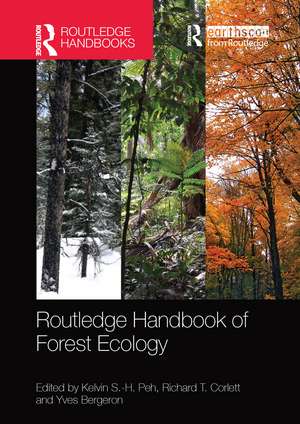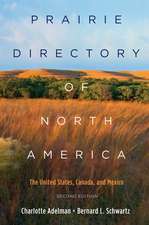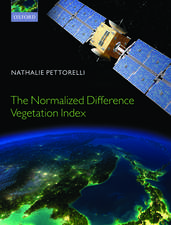Routledge Handbook of Forest Ecology: Routledge Environment and Sustainability Handbooks
Editat de Kelvin S.-H. Peh, Richard T. Corlett, Yves Bergeronen Limba Engleză Paperback – 24 ian 2018
- forest types
- forest dynamics
- forest flora and fauna
- energy and nutrients
- forest conservation and management
- forests and climate change
- human impacts on forest ecology.
| Toate formatele și edițiile | Preț | Express |
|---|---|---|
| Paperback (1) | 445.41 lei 3-5 săpt. | +44.12 lei 7-11 zile |
| Taylor & Francis – 24 ian 2018 | 445.41 lei 3-5 săpt. | +44.12 lei 7-11 zile |
| Hardback (2) | 1370.78 lei 6-8 săpt. | |
| Taylor & Francis – 22 oct 2015 | 1370.78 lei 6-8 săpt. | |
| Taylor & Francis – 7 oct 2024 | 1580.81 lei 6-8 săpt. |
Din seria Routledge Environment and Sustainability Handbooks
- 8%
 Preț: 446.44 lei
Preț: 446.44 lei -
 Preț: 344.05 lei
Preț: 344.05 lei -
 Preț: 345.96 lei
Preț: 345.96 lei -
 Preț: 375.80 lei
Preț: 375.80 lei -
 Preț: 341.55 lei
Preț: 341.55 lei -
 Preț: 332.04 lei
Preț: 332.04 lei - 15%
 Preț: 427.16 lei
Preț: 427.16 lei -
 Preț: 355.44 lei
Preț: 355.44 lei - 9%
 Preț: 1350.07 lei
Preț: 1350.07 lei - 26%
 Preț: 1359.11 lei
Preț: 1359.11 lei - 25%
 Preț: 1223.03 lei
Preț: 1223.03 lei -
 Preț: 449.41 lei
Preț: 449.41 lei - 15%
 Preț: 441.09 lei
Preț: 441.09 lei - 25%
 Preț: 352.95 lei
Preț: 352.95 lei - 27%
 Preț: 1229.98 lei
Preț: 1229.98 lei - 26%
 Preț: 1218.32 lei
Preț: 1218.32 lei - 26%
 Preț: 1189.60 lei
Preț: 1189.60 lei -
 Preț: 460.58 lei
Preț: 460.58 lei - 25%
 Preț: 1192.62 lei
Preț: 1192.62 lei - 11%
 Preț: 306.64 lei
Preț: 306.64 lei - 15%
 Preț: 483.15 lei
Preț: 483.15 lei - 26%
 Preț: 1187.85 lei
Preț: 1187.85 lei - 18%
 Preț: 1565.66 lei
Preț: 1565.66 lei - 15%
 Preț: 509.71 lei
Preț: 509.71 lei - 23%
 Preț: 410.54 lei
Preț: 410.54 lei - 26%
 Preț: 1356.60 lei
Preț: 1356.60 lei - 25%
 Preț: 1221.45 lei
Preț: 1221.45 lei - 18%
 Preț: 1558.26 lei
Preț: 1558.26 lei - 25%
 Preț: 1218.92 lei
Preț: 1218.92 lei - 11%
 Preț: 350.19 lei
Preț: 350.19 lei - 25%
 Preț: 1260.99 lei
Preț: 1260.99 lei - 18%
 Preț: 1563.17 lei
Preț: 1563.17 lei - 26%
 Preț: 1188.43 lei
Preț: 1188.43 lei -
 Preț: 356.63 lei
Preț: 356.63 lei - 25%
 Preț: 1220.17 lei
Preț: 1220.17 lei - 15%
 Preț: 507.27 lei
Preț: 507.27 lei
Preț: 445.41 lei
Preț vechi: 484.14 lei
-8% Nou
Puncte Express: 668
Preț estimativ în valută:
85.23€ • 89.40$ • 70.95£
85.23€ • 89.40$ • 70.95£
Carte disponibilă
Livrare economică 11-25 martie
Livrare express 25 februarie-01 martie pentru 54.11 lei
Preluare comenzi: 021 569.72.76
Specificații
ISBN-13: 9781138495319
ISBN-10: 113849531X
Pagini: 668
Ilustrații: 162 Illustrations, black and white
Dimensiuni: 174 x 246 x 44 mm
Greutate: 1.11 kg
Ediția:1
Editura: Taylor & Francis
Colecția Routledge
Seria Routledge Environment and Sustainability Handbooks
Locul publicării:Oxford, United Kingdom
ISBN-10: 113849531X
Pagini: 668
Ilustrații: 162 Illustrations, black and white
Dimensiuni: 174 x 246 x 44 mm
Greutate: 1.11 kg
Ediția:1
Editura: Taylor & Francis
Colecția Routledge
Seria Routledge Environment and Sustainability Handbooks
Locul publicării:Oxford, United Kingdom
Public țintă
Postgraduate and UndergraduateCuprins
1. Introduction Kelvin S.-H. Peh, Yves Bergeron and Richard T. Corlett Part 1: The Forest 2. Boreal Forests Jean-Pierre Saucier, Ken Baldwin, Pavel Krestov and Torre Jorgenson 3. Northern Temperate Forests Lee E. Frelich, Rebecca Montgomery and Jacek Oleksyn 4. Subtropical Forests Richard T. Corlett and Alice C. Hughes 5. Tropical Forests Lindsay F. Banin, Oliver L. Phillips and Simon L. Lewis 6. Managed Forests Jürgen Bauhus and Patrick Pyttel Part 2: Forest Dynamics 7. Insect Disturbances in Forest Ecosystems Dan Kneeshaw, Brian R. Sturtevant, Barry Cooke, Timothy Work, Deepa Pureswaran, Louis DeGrandpre and Dave MacLean 8. The Role of Fire in Forest Ecosystems David F. Greene and Sean T. Michaletz 9. Ecological Effects of Strong Wind on Forests Stephen M. Turton and Mohammed Alamgir 10. Forest Succession and Gap Dynamics Rebecca Montgomery and Lee Frelich 11. Tree Genetic Diversity and Gene Flow in Forest Ecosystems Francine Tremblay 12. Changing Forest Dynamics: Plot-based Evidence Simon Willcock and Nikée E. Groot Part 3: Forest Flora and Fauna 13. Lianas in Forest Ecosystems Stefan A. Schnitzer 14. Vascular Epiphytes in Forest Ecosystems David H. Benzing 15. Insects in Forest Ecosystems Andrea Battisti 16. Pests and Pathogens in North American Forest Ecosystems Louis Bernier and Sandy M. Smith 17. Bryophytes in Forest Ecosystems Nicole J. Fenton, Kristoffer Hylander and Emma J. Pharo 18. Lichens in Forest Ecosystems Per-Anders Esseen and Darwyn Coxson 19. Mammals in Forest Ecosystems Richard T. Corlett and Alice C. Hughes 20. Birds in Forest Ecosystems Jeffrey A. Stratford and Çağan H. Şekercioğlu 21. Global Patterns of Biodiversity in Forests Christine B. Schmitt Part 4: Energy and Nutrients 22. Mycorrhizal Symbiosis in Forest Ecosystems Leho Tedersoo 23. Biogeochemical Cycling David Paré, Daniel Markewitz and Håkan Wallander 24. Hydrological Cycling Michael Bredemeier and Shabtai Cohen 25. Primary Production and Allocation Frank Berninger, Kelvin S.-H. Peh and Hazel Smith Part 5: Forest Conservation and Management 26. Natural Regeneration after Harvesting Nelson Thiffault, Lluís Coll and Douglass F. Jacobs 27. Tropical Deforestation, Forest Degradation and REDD+ John A. Parrotta 28. Restoration of Forest Ecosystems David Lamb 29. Forest Fragmentation Ed Turner and Jake L. Snaddon 30. Ecological Effects of Logging and Approaches to Mitigating Impacts Paul Woodcock, Panu Halme and David P. Edwards 31. Pollution in Forests Mikhail V. Kozlov and Elena L. Zvereva 32. Biological Invasions in Forests and Forest Plantations Marcel Rejmánek Part 6: Forest and Climate Change 33. Fire and Climate: Using the Past to Predict the Future Justin Waito, Martin P. Girardin , Jacques C. Tardif, Christelle Hély, Olivier Blarquez and Adam A. Ali 34 Ecological Consequences of Droughts in Boreal Forests Changhui Peng 35. Assessing Responses of Tree Growth to Climate Change at Inter- and Intra-annual Temporal Scale Sergio Rossi, Jian-Guo Huang and Hubert Morin 36. Plant Movements in Response to Rapid Climate Change Richard T. Corlett 37. Forest Carbon Budgets and Climate Change Yadvinder Malhi, Sam Moore and Terhi Riutta 38. Modelling Climate Impacts on Forest Ecosystems David R. Galbraith and Bradley O. Christoffersen Part 7: Human Ecology 39. Multiple Roles of Non-timber Forest Products in Ecologies, Economies and Livelihoods Charlie M. Shackleton 40. Agriculture in the Forest: Ecology and Rationale of Shifting Cultivation Olivier Ducourtieux 41. Indigenous Forest Knowledge Hugo Asselin 42. Recreations in Forests Bruce Prideaux 43. Impacts of Hunting in Forests Rhett D. Harrison 44. The Ecology of Urban Forests Mark J. Mcdonnell and Dave Kendal
Recenzii
"...the Routledge Handbook is an accomplished book and was a great pleasure to read. Its greatest strength is its modernity and the way in which disparate topics are linked through common themes of climate change and disturbance, which is then concluded very succinctly in the final three sections. This binds all the chapters together and provides continuity throughout such a large subject as forest ecology. In all it was difficult to find fault with the book, and ultimately I can highly recommend it to students, postgraduates, teachers and researchers alike. I imagine it could become a standard text for students in this field, and I will certainly be using it as a reference text for topics I am less well versed in." - Michael J.W. Boyle, Imperial College London, UK, in International Forestry Review (2016).
"This is a weighty tome in every sense. It aims to provide a 'state of the art summary of our current knowledge of forest ecology' from a variety of perspectives, production, conservation recreation, and across a wide range of forest biomes with over 80 contributors... I think it succeeds surprisingly well, given the spread of its subject matter. It does provide a framework for understanding the different topics covered by the chapters, that you cannot get just from running a search for papers in Google Scholar or Web of Science." - Keith Kirby, in Bulletin of the British Ecological Society (October 2016).
"Forests have a multitude of resources (timber, non-timber plants, wildlife, water retention/erosion control, carbon sequestration, amelioration of climate, recreation, and inspiration); yet, at times, these may be incompatible. The key goals of this book are to help the reader gain the ability to understand forest ecology and a wider awareness of many forest values. The work offers detailed sections on forest biomes, forest dynamics, flora and fauna, forest biodiversity, energy and nutrient cycling, conservation and management, forests and climate change, and human interaction in forests (including agriculture, indigenous knowledge, recreation, hunting, and urban forests). Overall, the 44 chapters, written by 86 scholars, provide reliable information on forest ecological requirements, as well as on management needs. In the introduction, the editors write, “This handbook aims to act as a state-of-the-art summary of our current knowledge of forest ecology.” As such, it succeeds. This title will be of interest to laypersons as an introduction to forest ecology. For the graduate student, it provides extensive coverage of current research and excellent bibliographies. Summing Up: Highly recommended. Lower-division undergraduates through graduate students." - C. G. Heister, Yale University, in CHOICE (November 2016)
"This is a weighty tome in every sense. It aims to provide a 'state of the art summary of our current knowledge of forest ecology' from a variety of perspectives, production, conservation recreation, and across a wide range of forest biomes with over 80 contributors... I think it succeeds surprisingly well, given the spread of its subject matter. It does provide a framework for understanding the different topics covered by the chapters, that you cannot get just from running a search for papers in Google Scholar or Web of Science." - Keith Kirby, in Bulletin of the British Ecological Society (October 2016).
"Forests have a multitude of resources (timber, non-timber plants, wildlife, water retention/erosion control, carbon sequestration, amelioration of climate, recreation, and inspiration); yet, at times, these may be incompatible. The key goals of this book are to help the reader gain the ability to understand forest ecology and a wider awareness of many forest values. The work offers detailed sections on forest biomes, forest dynamics, flora and fauna, forest biodiversity, energy and nutrient cycling, conservation and management, forests and climate change, and human interaction in forests (including agriculture, indigenous knowledge, recreation, hunting, and urban forests). Overall, the 44 chapters, written by 86 scholars, provide reliable information on forest ecological requirements, as well as on management needs. In the introduction, the editors write, “This handbook aims to act as a state-of-the-art summary of our current knowledge of forest ecology.” As such, it succeeds. This title will be of interest to laypersons as an introduction to forest ecology. For the graduate student, it provides extensive coverage of current research and excellent bibliographies. Summing Up: Highly recommended. Lower-division undergraduates through graduate students." - C. G. Heister, Yale University, in CHOICE (November 2016)
Descriere
This comprehensive handbook provides a unique resource and essential reference text covering all aspects of forest ecology from a global perspective, with contributions from leading authorities covering both natural and managed forests from all regions and climates of the world.
Notă biografică
Kelvin S.-H. Peh is an associate professor of conservation science in the Faculty of Environmental and Life Sciences, University of Southampton, UK.
Richard T. Corlett is an Emeritus professor at the Xishuangbanna Tropical Botanical Garden, Chinese Academy of Sciences, Yunnan, China, and an honorary research fellow at the Royal Botanic Gardens, Kew, UK. He was previously a professor at the National University of Singapore and the University of Hong Kong, China.
Yves Bergeron is an Emeritus professor of forest ecology and management at Université du Québec en Abitibi- Témiscamingue and Université du Québec à Montréal, Canada.
Richard T. Corlett is an Emeritus professor at the Xishuangbanna Tropical Botanical Garden, Chinese Academy of Sciences, Yunnan, China, and an honorary research fellow at the Royal Botanic Gardens, Kew, UK. He was previously a professor at the National University of Singapore and the University of Hong Kong, China.
Yves Bergeron is an Emeritus professor of forest ecology and management at Université du Québec en Abitibi- Témiscamingue and Université du Québec à Montréal, Canada.












